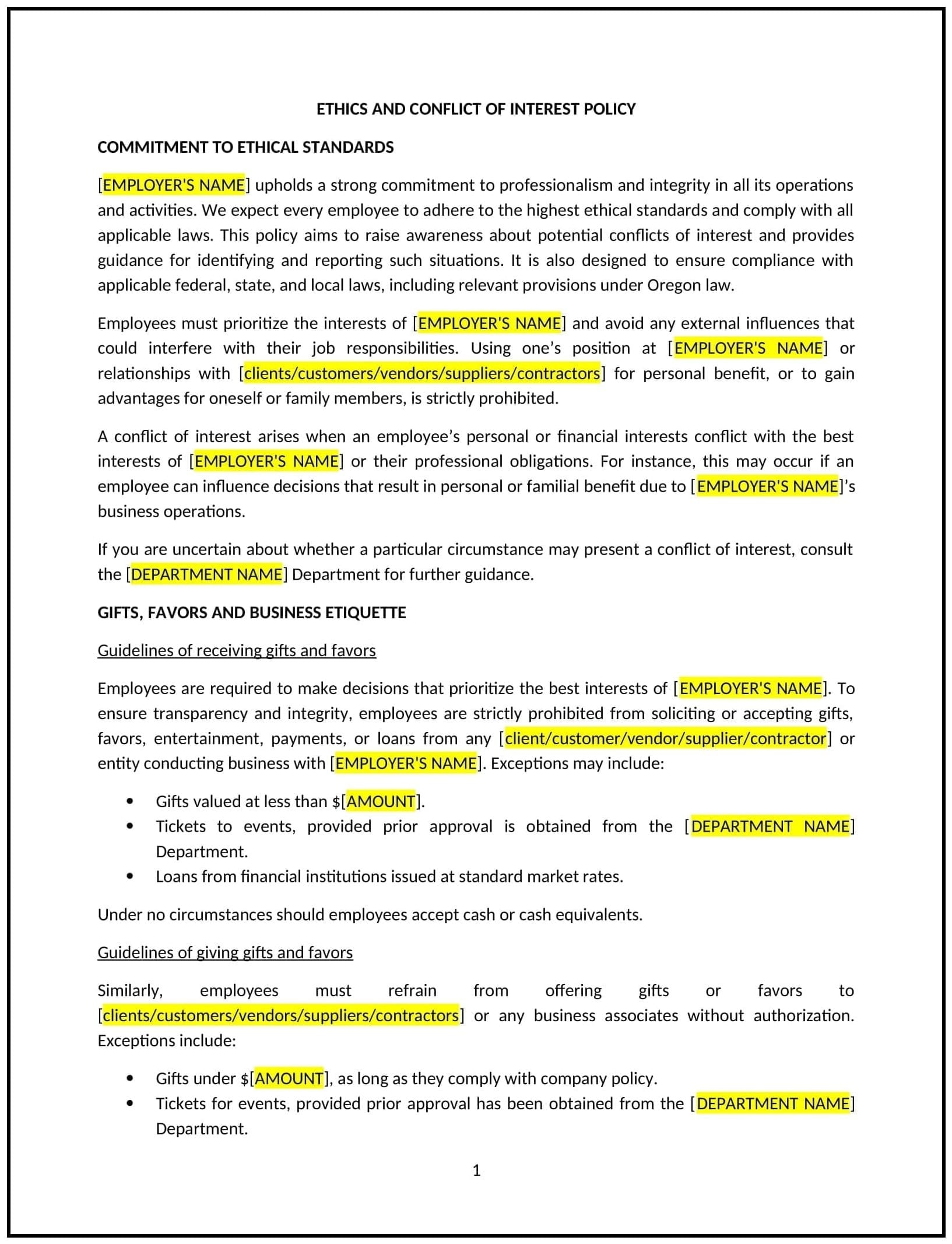Ethics and conflict of interest policy (Oregon): Free template
Got contracts to review? While you're here for policies, let Cobrief make contract review effortless—start your free review now.

Customize this template for free
Ethics and conflict of interest policy (Oregon)
This ethics and conflict of interest policy is designed to help Oregon businesses establish guidelines for ethical behavior and address potential conflicts of interest. It outlines expectations for employee conduct, procedures for disclosing conflicts, and steps for resolving ethical concerns.
By adopting this policy, businesses can promote integrity, build trust, and align with best practices for ethical business operations.
How to use this ethics and conflict of interest policy (Oregon)
- Define ethical standards: Explain the importance of honesty, transparency, and accountability in the workplace.
- Address conflicts of interest: Specify what constitutes a conflict, such as personal relationships or financial interests that may influence decisions.
- Establish disclosure procedures: Provide steps for employees to disclose potential conflicts of interest.
- Outline resolution steps: Describe how conflicts will be reviewed and resolved, such as recusal or reassignment.
- Train employees: Educate teams on ethical standards and their responsibilities under the policy.
- Monitor compliance: Regularly review employee conduct and conflict disclosures to ensure adherence to the policy.
- Update regularly: Assess the policy annually to align with evolving business needs and ethical standards.
Benefits of using this ethics and conflict of interest policy (Oregon)
This policy offers several advantages for Oregon businesses:
- Promotes integrity: Encourages ethical behavior and accountability among employees.
- Builds trust: Demonstrates a commitment to transparency and fairness in business operations.
- Reduces risks: Helps prevent conflicts of interest that could harm the business or its reputation.
- Enhances decision-making: Ensures decisions are made in the best interest of the business, free from personal bias.
- Aligns with best practices: Supports ethical business practices that are valued by employees, customers, and stakeholders.
Tips for using this ethics and conflict of interest policy (Oregon)
- Communicate the policy: Share the policy with employees and include it in the employee handbook.
- Provide training: Educate employees on ethical standards and their responsibilities under the policy.
- Encourage disclosure: Create a safe and accessible process for employees to disclose potential conflicts.
- Monitor compliance: Regularly review employee conduct and conflict disclosures to ensure adherence to the policy.
- Update regularly: Assess the policy annually to align with evolving business needs and ethical standards.